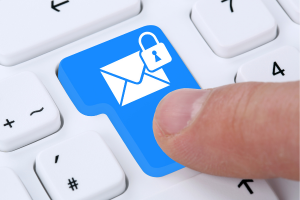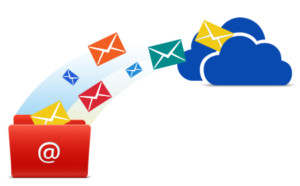Email remains one of the most widely used forms of communication in both personal and professional settings. However, it is also a significant target for cybercriminals looking to exploit vulnerabilities. From phishing scams to malware-laden attachments, email threats have become increasingly sophisticated. This is where email security comes into play.
RELATED: Enhancing Email Security with Advanced Anti-Spam and Filtering
Understanding What Email Security is?
Email security refers to techniques and practices designed to protect email accounts, communications, and data from unauthorized access, phishing attacks, malware, and other cyber threats. It involves multiple layers of protection, including encryption, spam filtering, authentication protocols, and user awareness training.
Why is Email Security Important?
1. Prevents Phishing Attacks
Phishing is one of the most common and dangerous email-based attacks. Cybercriminals disguise themselves as trustworthy entities to trick users into revealing sensitive information such as login credentials, financial details, or company data. Our solutions help detect and block phishing attempts before they reach users.
2. Protects Against Malware and Ransomware
Emails are often used to distribute malicious attachments or links, leading to malware infections. Some of these malware types include viruses, spyware, and ransomware. Advanced email security measures scan and filter out harmful attachments and links before they cause damage.
3. Ensures Confidentiality with Encryption
Sensitive business and personal communications require encryption to prevent unauthorized access. Email encryption scrambles messages so only the intended recipient can read them, keeping private information safe from hackers and cyber eavesdroppers.
4. Reduces Spam and Unwanted Emails
Spam emails are not only annoying but can also be dangerous. Many spam emails contain phishing links, malware, or scams. Effective spam filtering systems use AI and machine learning to analyze email patterns and block spam from reaching inboxes.
5. Prevents Business Email Compromise (BEC)
Cybercriminals often impersonate executives or business partners in Business Email Compromise (BEC) attacks to trick employees into transferring funds or sharing confidential data. Email security solutions help verify the authenticity of emails and detect fraudulent activity.
6. Ensures Compliance with Data Protection Regulations
Many industries and governments enforce strict data protection regulations, such as GDPR, HIPAA, and CCPA, to safeguard personal and business information. Secure email systems help organizations comply with these regulations by enforcing encryption, access controls, and email archiving.
7. Enhances Trust and Brand Reputation
A security breach due to poor email protection can lead to financial losses and damage a company’s reputation. Strong email security protocols build trust with customers, partners, and stakeholders, demonstrating a commitment to data security.
READ MORE ON: Email Security for Remote Teams: Challenges and Solutions
Key Components of Email Security
To effectively protect against cyber threats, organizations and individuals should adopt a comprehensive email security strategy that includes:
🔹 Email Authentication Protocols
- SPF (Sender Policy Framework) prevents email spoofing by verifying that an email is sent from an authorized server.
- DKIM (DomainKeys Identified Mail): Uses digital signatures to verify the authenticity of an email.
- DMARC (Domain-based Message Authentication, Reporting, and Conformance) helps domain owners prevent spam by setting policies for handling unauthenticated emails.
READ MORE ON: DMARC, SPF, and DKIM: The Foundations of Email Authentication

🔹 Spam and Phishing Filters
AI-powered spam filters analyze email content, sender reputation, and attachments to block suspicious emails before they reach the inbox.
🔹 Email Encryption
Encrypts email messages and attachments to ensure only authorized recipients can access the content.
🔹 Multi-factor authentication (MFA)
Requires additional authentication steps beyond passwords to prevent unauthorized email access.
🔹 Security Awareness Training
Educating employees and users about common threats, phishing tactics, and best practices can significantly reduce human-related vulnerabilities.
🔹 Regular Security Audits and Monitoring
Monitoring traffic and logs helps identify suspicious activities and potential threats before they escalate.
Conclusion
Email security is not just an option but a necessity in the digital world. With cyber threats constantly evolving, businesses and individuals must prioritize robust email security solutions to protect sensitive information, prevent financial losses, and maintain trust. Organizations can effectively safeguard their mail communications from cyberattacks by implementing strong authentication measures, encryption, and security awareness training.
Are you looking for a reliable email security solution? Contact MailSafi and Kaluari for enterprise-grade protection against phishing, malware, and unauthorized access.
![]()




